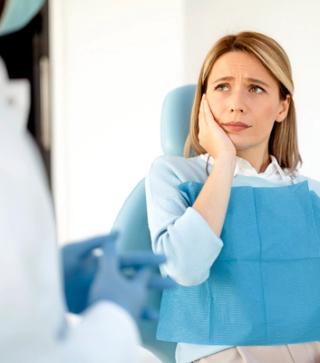Bruxism (teeth grinding)
Bruxism often occurs ꦡduring a deep sleep o♚r under stress.

Bruxism, or teeth grinding as it is more commonly referred to, is an uncontrollable clenching or grinding of the teeth against one another. This is more commonly attributed to a sleep disorder (sleep bruxism), but in certain circumstances occ♋urs when you are awake (awake bruxism). If left untrea෴ted, bruxism can lead to Myofascial muscle pains, TMJ Disorder, and headaches.
People who suffer from sleep bruxism can also suffer from other sleep-related disorders, such as sleep a🍸pnoea, w🌺hich can cause additional issues as it is harder to control.
Symptoms of Teeth Grinding
Signs of bruxism include:
- Sensitive teeth and increased tooth pain
- Loose teeth
- Cracked/chipped tooth enamel
- Flattened teeth
- Grinding sounds while you sleep
- Headaches (usually starting from the temple region)
- Chewing on the inside of your cheek
- Poor sleep
Causes of Bruxism
There is n🌞o one specific cause of bruxism but is the result of a combination of physical, psychological, and genetic elements.
- Stress, such as anger and/or anxiety
- Family members who also suffer from bruxism
- Underbite, overbite, and other abnormal bites
- Antidepressants, antipsychotics, and amphetamines can offer side effects leading to bruxism
- Certain neurological conditions (Parkinson's disease and Huntington's disease)
If you notice any of the symptoms above, speak to your dental practitioner, at a sui🎐table time for you and arrange for an inspection. If you notice your child grinding their teeth or suffering from ܫany symptoms, make sure to mention this at their next appointment.
